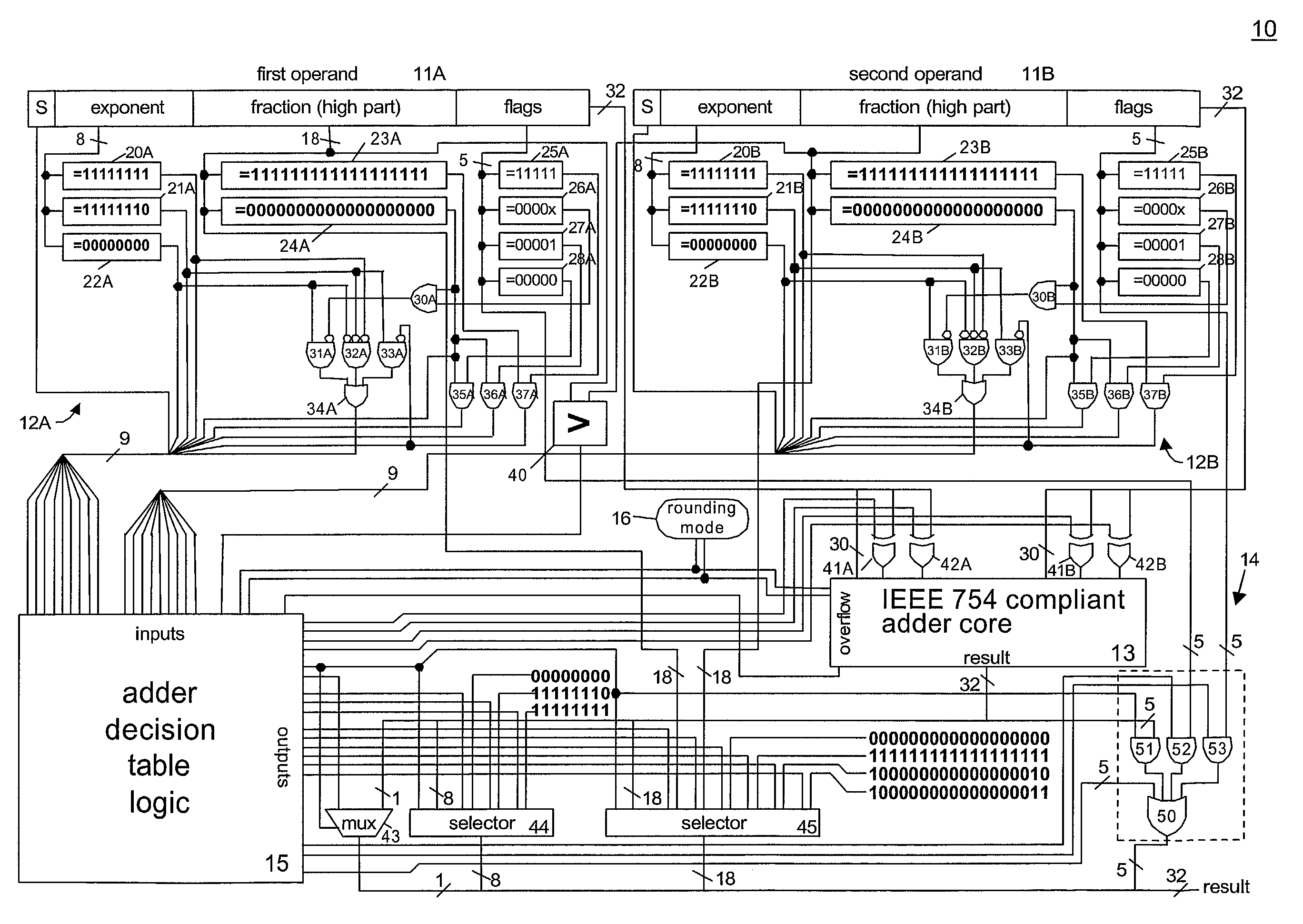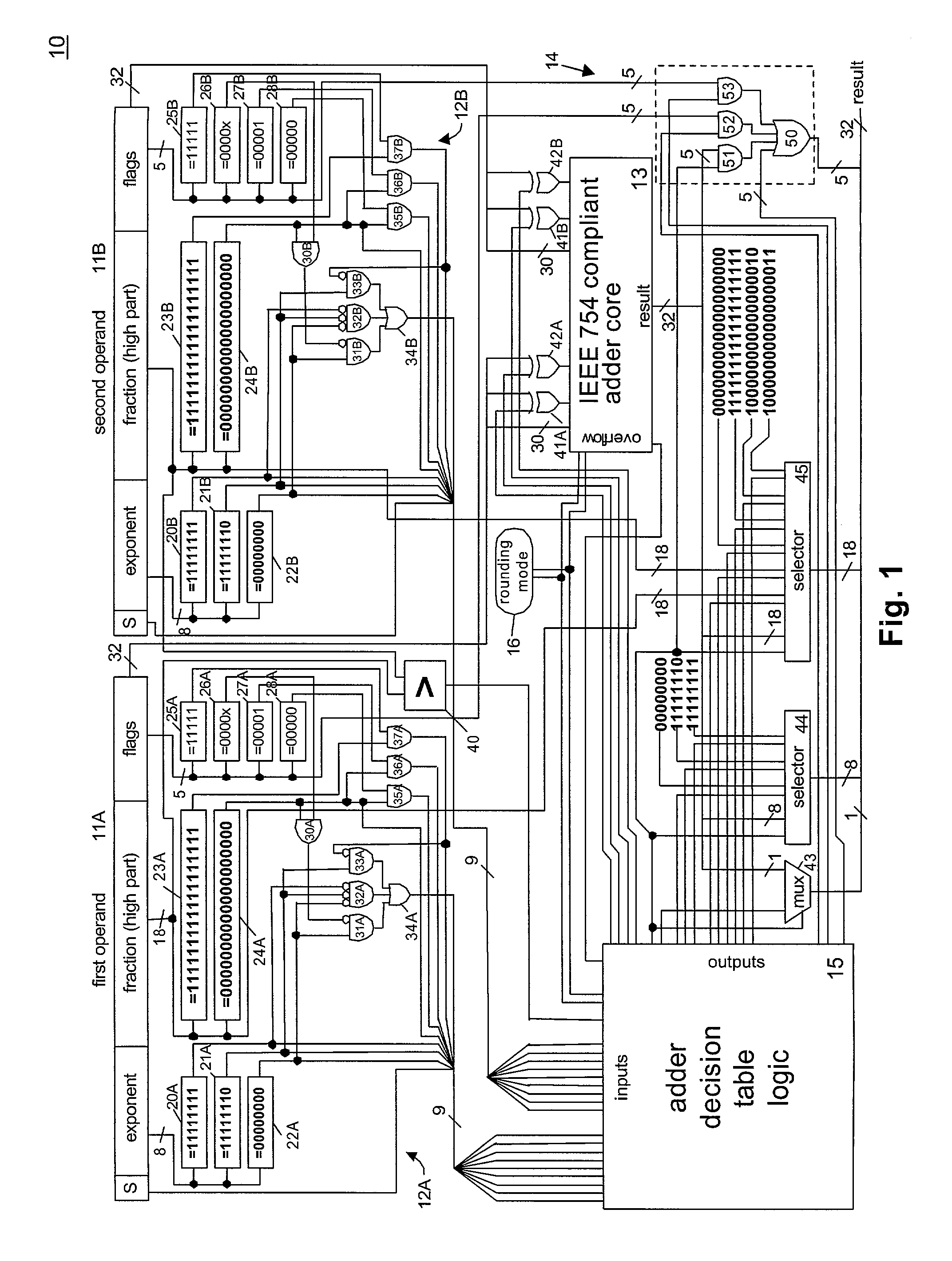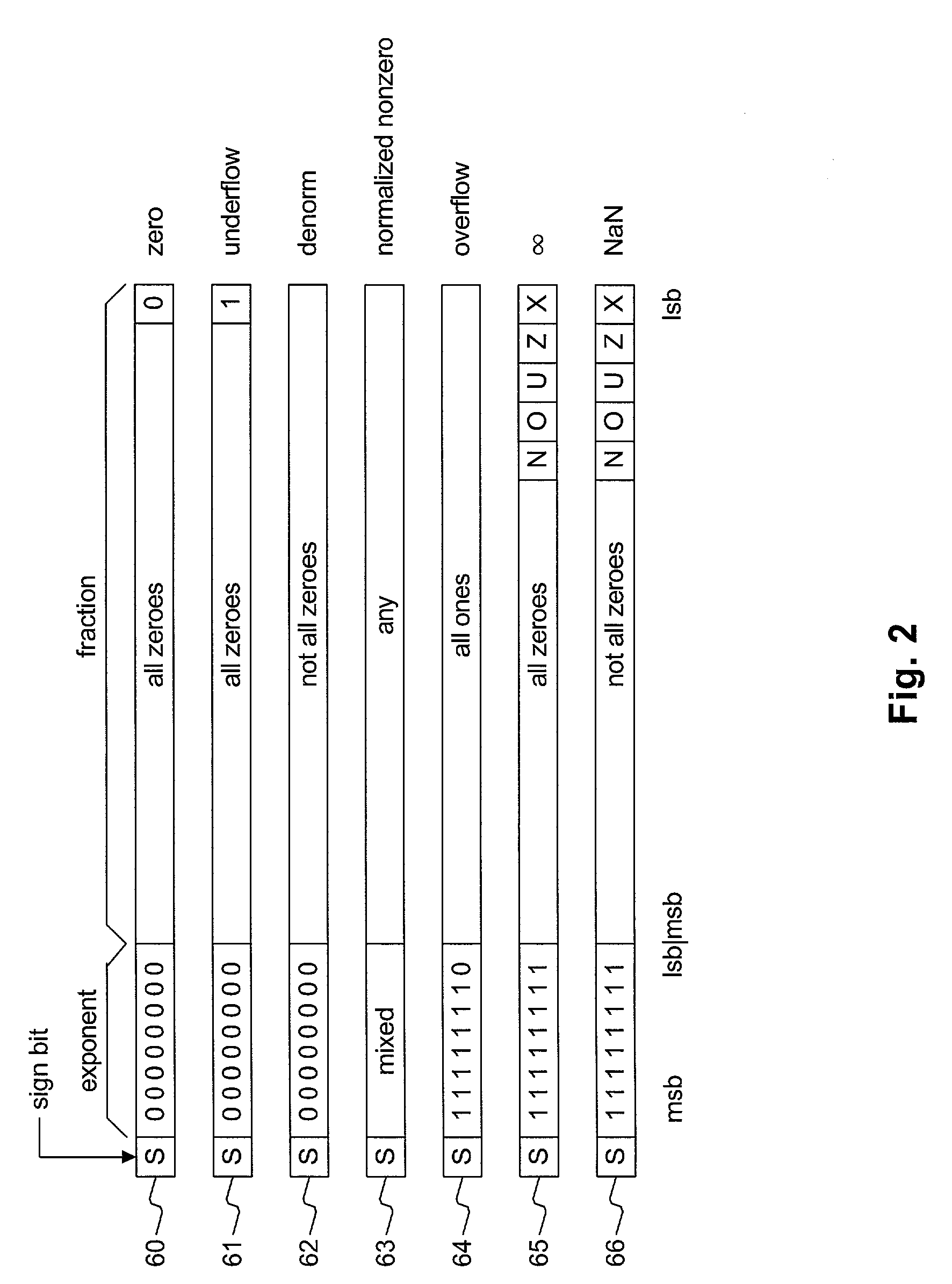Floating point adder with embedded status information
a status information and adder technology, applied in the field of floating point adder with embedded status information, can solve the problems of difficult compilers to perform optimizations on floating point code, difficult to implement coherently and efficiently in superscalar, superscalar and parallel processing architectures of today's superscalar, without loss of performance,
- Summary
- Abstract
- Description
- Claims
- Application Information
AI Technical Summary
Benefits of technology
Problems solved by technology
Method used
Image
Examples
Embodiment Construction
[0003]1. Field of the Invention
[0004]The invention relates generally to systems and methods for performing floating point operations, and more particularly to systems and methods for performing floating point addition with embedded status information associated with a floating point operand.
[0005]2. Background of the Invention
[0006]Digital electronic devices, such as digital computers, calculators and other devices, perform arithmetic calculations on values in integer, or “fixed point,” format, in fractional, or “floating point” format, or both. Institute of Electrical and Electronic Engineers (IEEE) Standard 754, (hereinafter “IEEE Std. 754” or “the Standard”) published in 1985 and adopted by the American National Standards Institute (ANSI), defines several standard formats for expressing values in floating point format and a number of aspects regarding behavior of computation in connection therewith. In accordance with IEEE Std. 754, a representation in floating point format compr...
PUM
 Login to View More
Login to View More Abstract
Description
Claims
Application Information
 Login to View More
Login to View More - R&D
- Intellectual Property
- Life Sciences
- Materials
- Tech Scout
- Unparalleled Data Quality
- Higher Quality Content
- 60% Fewer Hallucinations
Browse by: Latest US Patents, China's latest patents, Technical Efficacy Thesaurus, Application Domain, Technology Topic, Popular Technical Reports.
© 2025 PatSnap. All rights reserved.Legal|Privacy policy|Modern Slavery Act Transparency Statement|Sitemap|About US| Contact US: help@patsnap.com



